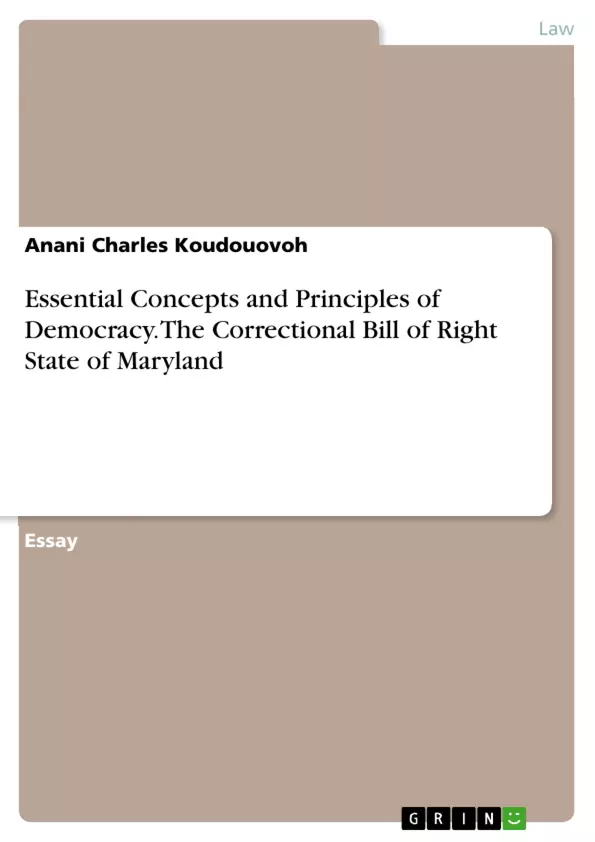Equality and due process are two fundamental democratic principles that influence overtime the formulation of public policy on the issue of the existing inequality in US. On one hand, the process of equality has transformed the American society. Inequality process hurts the general moral of the entire society so that philosophers reject discrimination and advocate equal opportunity. Public policy makers take into account this view point.
Nowadays; women, blacks, and other minorities can vote and hold office. In the US Amy, blacks and whites fight in the same units. According to the Supreme Court, all children, regardless of their origin should be educated in the same school. On the other hand, the due process enhances the equality of all citizens before the court. The two principles are interconnected and are suitable to promote a fair employment practice, an ideal work environment and generate diversity in the workplace.
From the same perspectives, this paper examines a case scenario in which the actors, members of the American Federation of State, County, and Municipal Employees (AFSCME) -State of Maryland Public Employees section, fought for employees rights especially, the equality and due process. History repeat itself and AFSCME Maryland has won many battles that strengthened the solidarity and the unity of all its members.
Of Course the State of Maryland Government itself led by Governor O’Malley, state senators and many non profits organization got involved in that query of good governance in favor of public employees. This paper used a framework set forth in the guidelines for case scenario. In this article, both the theoretical and the conceptual framework are used by the researcher to answer the research questions. The author drew the conceptual framework from the disciplinary fields of public policy, sociology, economy and management.
The theory used in this study is the incremental policymaking insight that emphasizes on the best outcomes. This paper is articulated around a background of the study, the variables involved and the relationship among them.Finaly, the researcher took position by drawing conclusion from the data collected through observation, contents analysis and interviews of some experts.
Inhaltsverzeichnis (Table of Contents)
- Introduction
- Background of the Study
- Relationships
- Conclusion
- References
Zielsetzung und Themenschwerpunkte (Objectives and Key Themes)
This paper explores the interplay between the democratic principles of equality and due process in the context of public policy, specifically examining a case study involving the American Federation of State, County, and Municipal Employees (AFSCME) in Maryland. The objective is to analyze how these principles influence the formulation and implementation of policies addressing inequality within the state's Department of Public Safety and Correctional Services (DPSCS).
- The impact of equality and due process on public policy formulation
- The role of employee unions in advocating for democratic principles in the workplace
- The balance between hierarchical structures and democratic participation in public safety organizations
- The application of the Fifth Amendment's Due Process Clause in public employment
- The concept of participatory democracy and its influence on public policy decision-making
Zusammenfassung der Kapitel (Chapter Summaries)
Introduction
This introductory chapter establishes the significance of equality and due process in shaping public policy related to inequality in the United States. It highlights the evolution of these principles and their application in various spheres of American society, including education, employment, and political participation.
Background of the Study
This chapter focuses on the two central organizations involved in the case study: the DPSCS and AFSCME. It provides an overview of their respective missions, structures, and the challenges they face in balancing public safety with employee rights. The chapter explores the history of disciplinary policies in the DPSCS and the shortcomings they presented in terms of due process.
Relationships
This chapter delves into the dynamics between the DPSCS and AFSCME, highlighting the role of employee unions in advocating for democratic principles within the workplace. It analyzes the interplay between the principles of equality and due process in the context of disciplinary actions and the challenges of maintaining a balance between hierarchical structures and democratic participation in public safety organizations.
Schlüsselwörter (Keywords)
The primary keywords and themes of this work include equality, due process, public policy, employee rights, democratic principles, participatory democracy, public safety, unions, AFSCME, DPSCS, Fifth Amendment, and case study.
Frequently Asked Questions
What are the fundamental democratic principles discussed?
The paper focuses on Equality and Due Process as central pillars that shape public policy and fair employment practices.
How does the Fifth Amendment apply to public employees in Maryland?
The Due Process Clause of the Fifth Amendment ensures that public employees are protected against arbitrary disciplinary actions without a fair legal process.
What is the role of AFSCME in this case study?
The American Federation of State, County, and Municipal Employees (AFSCME) fought for the rights, equality, and due process of Maryland's public employees.
What is "incremental policymaking"?
It is a theory of public policy that emphasizes making small, gradual changes to achieve the best outcomes over time rather than radical shifts.
What is the "Correctional Bill of Rights" context?
It refers to the legal framework and struggles regarding disciplinary policies within the Maryland Department of Public Safety and Correctional Services (DPSCS).
- Quote paper
- Anani Charles Koudouovoh (Author), 2011, Essential Concepts and Principles of Democracy. The Correctional Bill of Right State of Maryland, Munich, GRIN Verlag, https://www.grin.com/document/198364



